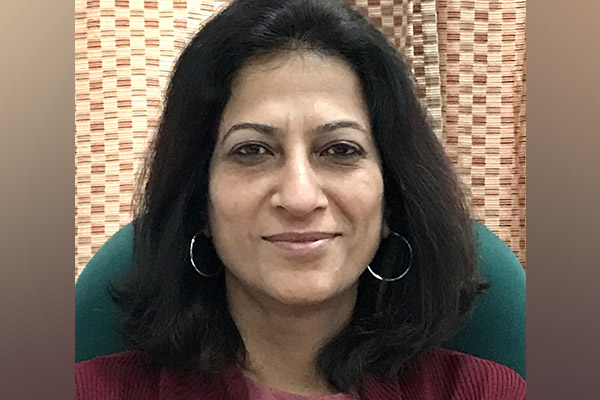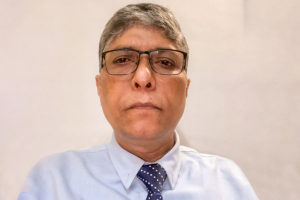“World trade will take some time to return to positive rates of growth”
Amita Batra, Professor of Economics, South Asian Studies at Jawaharlal Nehru University, feels that the Covid-19 situation is unprecedented in its scale, and will compel a rethink on the economic roadmap across the world.

TPCI: How do you view the repercussions of Covid-19 on India’s exports in the immediate term?
Amita Batra: With the closure due to the lockdown and restrictions all over, both manufacturing activities and exports are down. The international prediction by the WTO is that there is going to be a huge slump as far as international trade is concerned. Firstly there will be factory closures due to the lockdown across the board, so we don’t expect manufacturing activity to be taking place. Secondly, with the travel and transport restrictions, you do not have any means to transport goods. And most importantly you have an existing demand decline as well as a potential demand decline in both the domestic and international markets because of the closures and home-bound people. So you have both – supply and demand impacted adversely– and that means major constraints for domestic and international sales and exports.
TPCI: MSMEs would face the major brunt of this lockdown. What measures can the government take to secure their future?
Amita Batra: As it is being recommended and as one would expect, the government has to come forward with financial assistance for the small and medium sector. The MSMEs are going to feel the maximum burden of this period. This is because they run on minimum cash flows and at this point of time, beyond a certain point, it will be very hard for them to continue at all. The government must be ready to extend loans and financial assistance to the extent that it can to all the medium and small enterprises, so that insolvencies and bankruptcies can be avoided.
This is absolutely essential but at the same time, it should be ensured that these enterprises do not lay off workers. Maintenance of payrolls of workers should somehow be linked to who/ which units are being assisted at this time. They cannot lay off workers and then claim assistance from the government. The workers are the most vulnerable at this point of time, particularly in small and medium enterprises. If you look at the periodic Labour Force Survey, you will see that 77% of the wage earning labour – which is regular and would be ideally ‘better off’ than the casual labour – are actually working without a formal contract. So it is very easy at this point of time to claim the constraints that small and medium enterprises would, to lay off workers.
Therefore, I feel that somehow the two should be linked – who and what the government assists in terms of financial assistance and packages and what these enterprises do in terms of the number of people that they retain on their payrolls.
Moreover, you have a large proportion of the economy in the informal sector, particularly in small and medium enterprises. This makes it difficult both ways – for the government to reach them as well as for them to have or benefit from the extension of financial assistance from the government. There has to be some very serious tracking by the government in terms of how it approaches this entire issue of the informal sector.
TPCI: The multilateral trade framework was already under stress in the pre-Covid period. How do you view the prospects of trade negotiations in the post-Covid-19 era?
Amita Batra: It is very early to say (about the scenario post-Covid), because everything is in a very fluid context at the moment. You don’t know how long this pandemic is going to last and what its intensity will be. For now, it’s a fact that we see a slump in global trade. But at the same time, it is very important for us to note how cooperation has become very, very significant in these times. Many countries have implemented bans on exports of medicines, PPEs, etc. It is important for us to not do that and be as cooperative as possible in terms of what is required.
The crisis has brought forward the importance of cooperation to us, even if it is restricted to a few sectors. In the longer run also, I feel that you cannot be purely restricted now to nationalistic borders. It is important that countries come together under the multilateral framework to see how trade can be taken forward. Individual nations working on their own either in the present time or after this period will become more and more difficult. The cooperative element should come out in this entire process.
TPCI: What lessons does the Covid-19 pandemic offer for India in terms of preparedness in areas like healthcare systems, economic resilience and self sufficiency in medicines, medical equipment, PPE, etc?
Amita Batra: The question will be how much can you prepare? The fact is that this has been totally unpredictable and uncertain for everybody. World over, the top ten nations that have been hardest hit are probably also the top ten economies of the world. So we cannot really say that anyone could have prepared better, because we see the best of the economies suffering the most at this time – be it in terms of their reactions, their medical infrastructure, .or in terms of government policy also.
For instance, the US was very relaxed in the beginning and did not take it seriously. They also delayed and limited the testing. I think all countries would work on preparedness to some extent now. But beyond a point, given the kind of unknown that we are faced with, it was very difficult for governments to have prepared for this. I think people and governments should do what they can to help each other, because all countries face a challenging task of protecting themselves medically as well as economically.
TPCI: The world has gone through financial crises as well as pandemic situations before. As an economist, do you see any precedents that can guide policy action in the present day?
Amita Batra: I do not think that any crisis prior to this can be compared. A lot of analysts keep referring to the financial crisis of 2008, but I would say that is an inappropriate comparison. That was a very limited event with a limited life, where policy action could be taken quickly. You knew what to do.
In this case, it is a complete unknown. Even medically, you have the world’s top scientists and researchers coming together to find either a treatment or vaccination. Indeed, we would need a combination of monetary, fiscal and trade policies to be able to overcome this period. The monetary action would be in the form of central bank’s assistance to financial intermediaries, who need to lend at concessional rates to small and medium enterprises in particular.
Fiscal packages are necessary to shield those of us who are quarantined and who have income shortfalls. You need to reach those who are most vulnerable at this point of time. The third is trade policy to be able to coordinate and cooperate, particularly in sectors like medical equipment, pharmaceuticals, etc. I think you need a combination of all of these.
As far as lockdowns are concerned, we know that they have their positives and negatives. It’s important to flatten the curve, but it is important to see the adverse impact that it has on the economy. The question in front of India and the world is not whether we should have the lockdown, but it is about how long and what should be shut down. So the government has to decide whether to have a staggered or a phased lockdown, how do you open up, how do you keep some business going during the lock down, etc.
The uncertainty will continue until we don’t get a treatment or a vaccination, which may not come before 12-18 months. Prior to that, a lot depends on the intensity of the pandemic. Does it get happen in one instance or does it keep recurring and eventually become endemic? It may affect more and more people, but not in a similarly severe form. Depending on how the pandemic itself evolves, restrictions may continue in some form or the other, at least till the end of the year.
For trade to come back, it is tough to predict. We haven’t even seen global trade come back to even the pre-2008-09 crisis level. In these 11 years, trade growth has never been what it was pre-financial crisis. After this crisis, even coming back to positive rates of growth will take time. We cannot expect anything to happen immediately. The objectives and goalposts may change and so would the mechanisms to achieve that. Value chains across the world will also change. There is going to be a lot of rethinking on what and how we have been doing and what will be done in the future to secure both health and economy.













Leave a comment